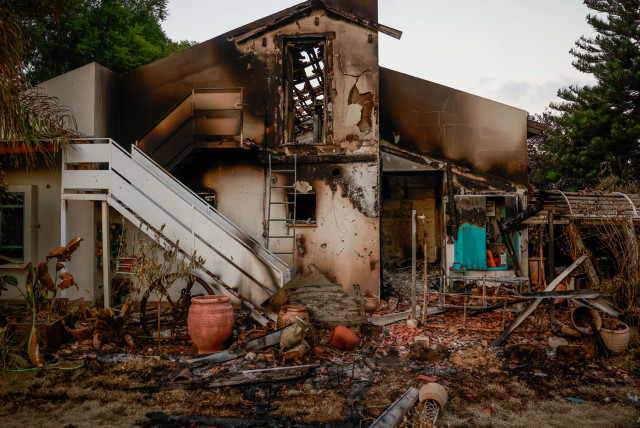New initiative to bolster early childhood education in communities affected by October 7

The initiative will initially support 25 preschools for children aged three to six, including three special education institutions.
SASA Setton and Alumot Or, in partnership with Bank Hapoalim’s “Poalim Litkuma” Fund, have launched a three-year initiative aimed at supporting the rehabilitation and development of early childhood education centers in the Western Negev.
The project focuses on preschools in areas impacted by the October 7 massacre, particularly in the Gaza border, and is being carried out in coordination with the Education Ministry and local authorities.
The initiative, which started with the current school year, will initially support 25 preschools for children aged 3 to 6, including three special education institutions. These centers will implement a comprehensive approach aimed at improving the educational and emotional environments for children and staff.
Funded by contributions from local and international donors – including the “Poalim Litkuma” Fund and philanthropic families from the US – the project is intended to aid the region’s recovery.
A central feature of the initiative is the use of educational models such as the Reggio Emilia and Waldorf approaches, adapted to meet the needs of the Western Negev communities.
The project also emphasizes emotional support, addressing the psychological effects of recent events. The Barzilai Medical Center in Ashkelon, in collaboration with the Anna Freud Centre in London, will offer ongoing psychological care for children, educators, and families.
In addition to educational improvements, the project aims to foster stronger community ties, encouraging families displaced by the conflict to return. The initiative also includes the creation of supportive and stimulating educational spaces, along with professional development for teachers to enhance their ability to provide emotional and academic support to children.
Sonia Gomes de Mesquita, head of the project and donor representative, highlighted its broader goals. “This project goes beyond renovating or rebuilding preschools damaged by recent events. We are undertaking a long-term effort to establish centers of excellence that meet the specific needs of the Western Negev. This is not only about education but also about supporting community resilience and recovery,” she stated.
Repairing the damage of October 7
This initiative, which involves an investment of around NIS six million, is part of Bank Hapoalim’s broader efforts to assist the region following the events of October 7. Reuven Krupik, Chairman of Bank Hapoalim’s Board of Directors, noted the project’s importance to the affected communities.
“The events of October 7 are a national tragedy that continues to affect many. Children aged three to six, along with their parents, have faced significant emotional trauma. Educational teams play a vital role in helping these children build mental resilience and shaping their future,” he said, quoting young Pakistani human rights activist Malala Yousafzai, “‘One child, one teacher, one pen, one book can change the world.’”
The project includes a detailed evaluation process with ongoing reviews of children’s progress, regular assessments of educational quality, and measurement of community impact. The goal is to expand the initiative to include additional preschools in the coming years, particularly in the Gaza border and Western Negev communities most affected by the ongoing conflict.
Jerusalem Post Store
`; document.getElementById("linkPremium").innerHTML = cont; var divWithLink = document.getElementById("premium-link"); if (divWithLink !== null && divWithLink !== 'undefined') { divWithLink.style.border = "solid 1px #cb0f3e"; divWithLink.style.textAlign = "center"; divWithLink.style.marginBottom = "15px"; divWithLink.style.marginTop = "15px"; divWithLink.style.width = "100%"; divWithLink.style.backgroundColor = "#122952"; divWithLink.style.color = "#ffffff"; divWithLink.style.lineHeight = "1.5"; } } (function (v, i) { });

